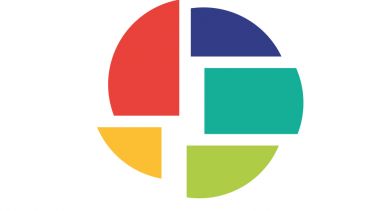The finale was a fitting celebration of the new possibilities that a virtual format has afforded the MRG. We concluded this year’s seminar series during Refugee Week 2021, delivered in collaboration with MIMY (Empowerment and Integration of Migrant Youth) and the Migration Matters Festival.
The panellists joined us from the suburbs of Sheffield, West Yorkshire, the Welsh mountains and Bendigo, Australia. 13 presenters, representing four organisations and five universities delivered six inspiring talks, connected by their collective work with migrant communities and young people to understand processes of integration and inclusion. Refugee Week 2021’s overarching theme is ‘We cannot walk alone’ and the invited speakers discussed how and why they work together, walking alongside each other to drive meaningful social change. So how did they achieve this – through inclusive, participatory, co-navigational approaches to research projects and practice, a clear demonstration, that . . . ‘If you want to go far, go together’.
If you missed the seminar or want explore the work of these individuals or organisations in more detail, here’s an overview.
Presentation 1.
Gai Porth Soe La Myint, Community Researcher from the Karen community in Bendigo, Australia and Caitlin Nunn from the Manchester Centre for Youth Studies joined us to talk about their community led research working with members of the Karen community to enable their needs to be ‘known’ and understood by health care providers.
Further information can be found in the journal article: ‘Promoting healthy futures in a rural refugee resettlement location’, a report ‘Evidence based tips for enhancing health and wellbeing of Karen people in Bendigo’, in addition to two short films on YouTube: ‘Healthy futures for Karen people in Bendigo’ and the response ‘Healthcare responses Healthy futures for Karen people in Bendigo’.
Presentation 2.
Dr Vanja Celebicic and Tesfalem Yemane (PhD candidate) joined us from Migration Yorkshire, an organisation working with national and local government and others, to ensure that Yorkshire and Humber can deal with, and benefit from, migration. Vanja and Tesfalem have experience of a wide range of peer research projects. Their conversation raised some important and insightful questions about the nature of peer research – particularly in terms of the power held by peer researchers in relation to their position in the lead organisation, as well as the research project being undertaken. They asked the important questions, of how to define the ‘peer’ in ‘peer research’?
Presentation 3.
Maleiki Haybe from the Unity Gym Project (UGP) – a Sheffield based youth charity, committed to the promotion of health and wellbeing and Dr Will Mason, University of Sheffield, presented a taster of a documentary film they produced and reflections on the relationship between the gym and the university.
Unity Gym is located in an inner city area and was established in 2010 in response to diminishing resources for young people and families. Maleiki and Will reflected on the role of the gym and its members in instigating, as opposed to responding to externally defined research projects. Watch the film in full The Unity Gym Project // a short documentary and read more about the process: #unitydoc Participatory Filmmaking as Counter-Storytelling.
Presentation 4.
Khaled Aljawad, Mohammad Aljawad, John Tomlinson and Hannah Butterfield from Stand & Be Counted Theatre company presented Have Your Passport Ready: an interactive immersive gaming experience designed to challenge our understanding of the hostile environment. Mohammad and Khaled designed and developed a game that provides insight into what’s it’s like to have to navigate a new city as a migrant, one where the language, culture, everything is new. So far 3,000 people across 57 countries have played – now it’s your turn!
We also recommend you explore ‘Hidden Winter’ an audio adventure story.
Presentation 5.
Dr Kelly Devenney, University of York discussed her work in relation to unaccompanied asylum seeking children (UASC) and their experiences of co-navigating life in the UK with the support of their social worker. Kelly talked about the inherent challenges negotiating services and opportunities in an unfamiliar context, coupled with the additional complexities created by anti-migrant hostility. Detailed research findings can be accessed in Kelly’s recent journal article ‘Social Work With Unaccompanied Asylum-Seeking Young People: Reframing Social Care Professionals As ‘Co-Navigators’
Presentation 6.
Javier Sanchez-Rodriguez and Dr Jasber Singh rounded off the presentations with an introduction to The Anne Matthews Trust and their work on anti-racism in the UK. They created a safe space in the calm and peace of the Welsh mountains, offering people with experiences of migration, racism, misogyny and/or unemployment, a break from the everyday pressures of life. The ‘Get Away’ programme offers structured opportunities to engage in anti-racist work through involvement in participatory action research. They concluded by connecting their local work to global understandings of migration and inequality, and highlighted the social and political issues being faced in Colombia today.
This is a brief introduction that doesn’t do justice to the powerful and transformative work that has and continues to take place. We urge you to explore in detail the projects, outputs produced and approaches undertaken by our speakers to their work with migrant communities.
To find out more about the MIMY project and their research with young people on themes of integration and empowerment in South Yorkshire, please get in touch with Dr Thea Shahrokh (t.shahrokh@sheffield.ac.uk).
Watch this space for the 2021/22 seminar series – thank you for your continued support, enthusiasm and engagement in the MRG. We wish everyone a wonderful summer break.

